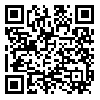

Volume 9, Issue 1 (4-2011)
RBS 2011, 9(1): 0-0 |
Back to browse issues page
Download citation:
BibTeX | RIS | EndNote | Medlars | ProCite | Reference Manager | RefWorks
Send citation to:



BibTeX | RIS | EndNote | Medlars | ProCite | Reference Manager | RefWorks
Send citation to:
نويديان ع, حق شناس ل, عابدي م ر, باغبان ا, فاتحي زاده م. Contrasting the effectiveness of group cognitive behavior therapy and group cognitive behavior therapy with motivational interviewing on behavior and performance of patients with obsessive – compulsive disorder. RBS 2011; 9 (1)
URL: http://rbs.mui.ac.ir/article-1-181-en.html
URL: http://rbs.mui.ac.ir/article-1-181-en.html
1- کارشناس ارشد مشاوره
2- دانشيارگروه مشاوره دانشکده علوم تربيتي و روانشناسي، دانشگاه اصفهان،اصفهان،ايران
3- استاديار گروه مشاوره دانشکده علوم تربيتي و روانشناسي، دانشگاه اصفهان،اصفهان،ايران
2- دانشيارگروه مشاوره دانشکده علوم تربيتي و روانشناسي، دانشگاه اصفهان،اصفهان،ايران
3- استاديار گروه مشاوره دانشکده علوم تربيتي و روانشناسي، دانشگاه اصفهان،اصفهان،ايران
Abstract: (3664 Views)
Aim and Background:Increasing of being responsive to the present treatments including cognitive-behavioral therapy is the priority of clinical research and motivational intervening is considered as a hopeful intervention.The aim of this study was to determine the effectiveness of motivational interviewing on the severity of symptoms of patients with obsessive – compulsive disorder. Methods and Materials: This research is a clinical trial study. Pre-test, post-test with a control group were done on 40 people suffering from OCD in 2009. The subjects were selected by convenience sampling and were randomly classified into the experimental group (No.=20) and the control group (No.=20). The intervention consisting of ten sessions of group Cognitive-Behavioral Therapy and motivational interviewing was given to the experimental group . The data obtained by Yale – Brown Obsessive– Compulsive Scale and Sheehan Disability Scale was analyzed by statistical tests of repeated measures analysis and t-test. Findings: The results revealed that the average of Yale - Browen score of the intensity of Obsessive– Compulsive symptoms in pre-intervention, post-intervention and follow-up stages were 29.64 , 19.92 , 20 in the control group and 34.58 , 17.23 , 19.35 in the experimental group respectively.The variance analysis test repeated measures showed that after the intervention also there was no significant difference between the two groups (p = 0.06) but the decrease in the intensity of OCD symptoms in the experimental group was more than the control group( p = 0.0001) and this decrease continued until the follow-up. Conclusion: Combining group motivational interviewing with cognitive-behavioral therapy is an effective technique in decreasing the severity of the symptoms of obsessive-compulsive disorder and eventually decreasing the disability produced by the symptoms.
Keywords: motivational interviewing, obsessive &, ndash, compulsive disorder, Cognitive-Behavioral Therapy, functional Disability.
| Rights and permissions | |
 |
This work is licensed under a Creative Commons Attribution-NonCommercial 4.0 International License. |



